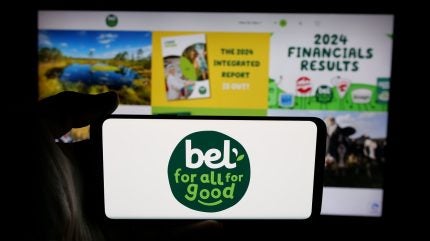
France-based Bel has initiated a worldwide shift of its Babybel packaging from bio-based cellophane to recyclable paper, beginning with a commercial launch in the UK.
The company plans to extend the new format to the US, Canada and Northern Europe in 2026, with full adoption across 50 markets targeted for 2027.

Discover B2B Marketing That Performs
Combine business intelligence and editorial excellence to reach engaged professionals across 36 leading media platforms.
The move forms part of Bel’s broader objective to ensure that all its packaging is recycling-ready by 2030 and to cut plastic use across its portfolio.
The transition follows several years of research and development to identify an alternative to the home-compostable cellophane that was introduced in 2020.
Bel states that the change represents a significant challenge, as the packaging must continue to safeguard product quality, ensure microbiological safety and cope with temperature fluctuations throughout the supply chain.
The red wax coating on Babybel cheeses will remain in place.

US Tariffs are shifting - will you react or anticipate?
Don’t let policy changes catch you off guard. Stay proactive with real-time data and expert analysis.
By GlobalDataBy 2027, Bel aims for all Babybel products produced at its five manufacturing sites to be packed in paper sourced from certified, responsibly managed origins.
Both factory pilots and in-market trials have demonstrated that the new paper solution meets the performance standards required for large-scale industrial production.
Work on new packaging solutions is also progressing for Kiri, while The Laughing Cow and Materne fruit compotes are being made available in bulk formats via the DéfiVrac Coalition, using an in-store dispensing system that is currently under test.
The Babybel brand plays a key role in Bel’s overall packaging roadmap, with global reach and two billion portions consumed each year.
Bel Group executive vice-president in charge of Growth Béatrice de Noray stated: “ Transforming our production and consumption models is one of the greatest challenges of our time. At Bel, we choose to put innovation at the service of more responsible and accessible food for all.
“This ambition sits at the heart of our growth strategy and guides the evolution of our brands, our industrial processes and our packaging. Babybel has been part of families’ lives for more than 70 years.
“By advancing its packaging, we are taking a structural step in our journey, embodying the combination of responsibility and performance that defines Bel’s DNA.





